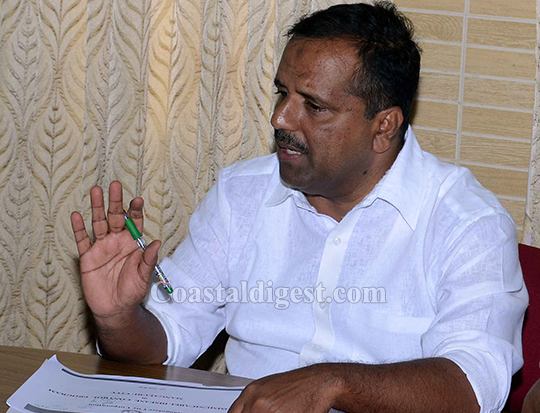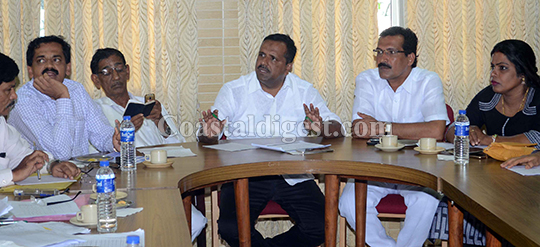Mangaluru, Jun 14: As part of its measures to prevent the spread of vector-borne diseases in rural and interiors areas of Karnataka state, the health department is all set to introduce mobile health clinics, sad U T Khader, Minister for health and family welfare.

Speaking to reporters here on Monday, Mr Khader said that three medical vans each will be provided to all districts across the state to prevent the spread of dengue, malaria and other vector borne diseases.
"Each van will have a nurse, lab equipment and larvicide sprayer. The vans will reach villages and provide medical care and take up larvicidal activities to stop mosquito breeding," Khader said adding that more such vans will be introduced based on requirement.
Talking about the recent death of four persons, who are suspected to have contracted dengue, in Dakshina Kannada district, Khader said that there is no medical confirmation to prove they have died due to dengue or not. "District level audit committee headed by the DHO verifies test reports and concludes whether the death is caused by dengue or not," Khader said.
In Dakshina Kannada, a total of 167 cases of dengue were reported in 2016. Out of 167 cases, 76 are confirmed through Elisa test method and 91 with NS1 technique. Meanwhile, a total of 1,786 cases of malaria were recorded in the district in 2016, wherein 1,544 were reported in Mangaluru City Corporation limits. A 'Swacchatha Sapthaha', cleanliness week, will be observed from June 15 to create awareness on possibility of spread of vector-borne diseases.
As per the directions of the Union ministry of health and family welfare, National Dengue Day will be observed on June 16, he said adding that various activities to prevent mosquito breeding will be taken up during the period.
Private medical colleges including KVG Medical College, KS Hegde Medical Academy, KMC, Yenepoya Medical College and Father Muller Medical College will also be joining hands with the department by deputing doctors, Khader said.






Comments
This man knows only to announce but no implementation.. raids a hospital once midnight and gains publicity
Add new comment